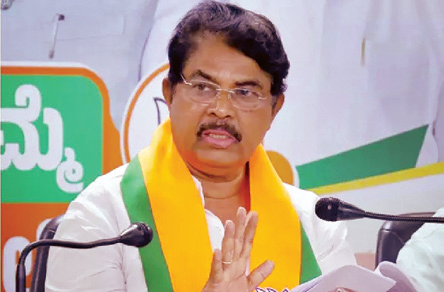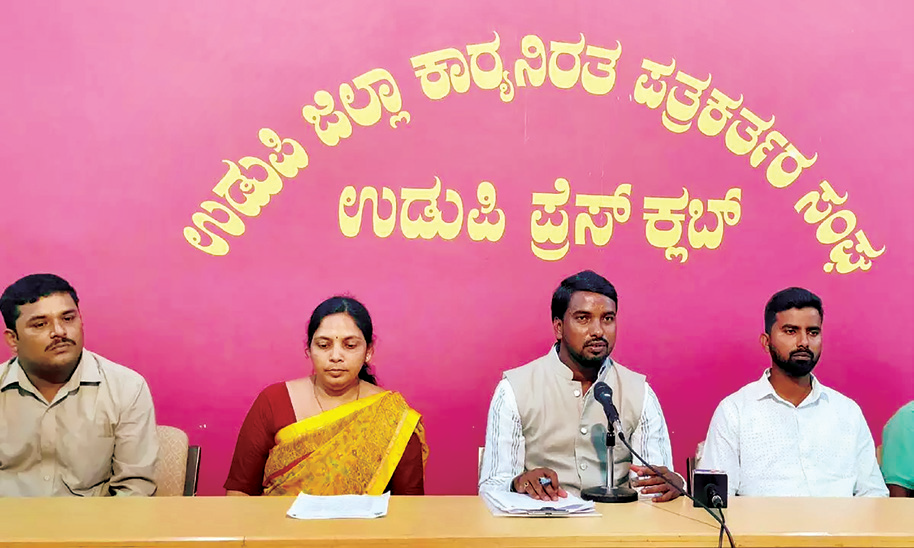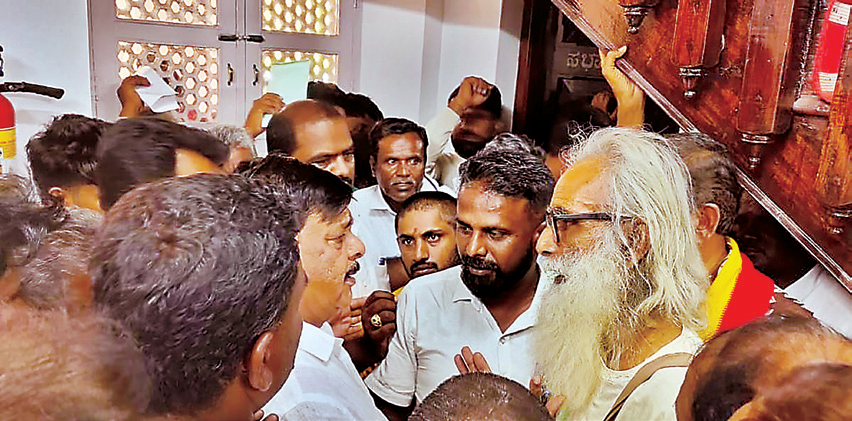
Congress ministers given Lok Sabha responsibilities: Strategy or gamble?
Shyam Sundar Vattam | NT
Bengaluru: In a bid to secure a strong position in the upcoming Lok Sabha polls, the Congress high command has reportedly assigned every minister the responsibility of overseeing the Lok Sabha constituency in their respective districts.
This move aims to ensure the party’s success in these constituencies and further capitalise on the momentum gained from the recent Assembly polls.
However, this strategy has raised questions and eyebrows due to some puzzling choices in the distribution of responsibilities.
While there are 31 ministers for 31 districts, the assignments do not always align with the ministers’ domain of expertise.
For instance, Housing Minister Zameer Ahmed Khan has been tasked with the newly-formed Vijayanagar district, while Minor Irrigation Minister NS Boseraju is assigned to the Kodagu district.
Similarly, Co-Operation Minister KN Rajanna has been made in charge of Hassan district, raising concerns about the rationale behind such decisions.
It is reported that Congress National General Secretary and In-Charge of Karnataka Affairs, Randip Singh Surjewala, has stated that ministers who fail to secure victory for Congress candidates in their respective districts may face consequences.
However, this approach is met with skepticism, as electoral patterns can vary significantly from one election to another.
Voters may not consistently support the same party in different elections, and other factors such as local dynamics and candidate appeal play crucial roles.
While the Congress party is buoyed by its success in the recent Assembly polls, the outcome of the Lok Sabha polls remains uncertain. Karnataka’s electorate is known for its tendency to switch allegiances between parties in successive elections, making any predictions challenging.
Ministers are now faced with a challenging task, exacerbated by internal bickering in various districts over the exclusion of senior MLAs from the Cabinet.
This internal strife may impact the ministers’ ability to secure unified support within their constituencies. Some ministers have expressed scepticism regarding this strategy, questioning the fairness of holding them solely responsible for the electoral outcome.
They argue that such an approach may allow those who were in leadership positions to evade accountability, leading to concerns of a disproportionate burden on the ministers.
These concerns have prompted discussions about adopting a collective approach to the Lok Sabha polls, with an emphasis on unity and teamwork rather than placing excessive reliance on individual ministers.
A cohesive team effort, involving both ministers and legislators, could potentially provide a more balanced and effective approach to securing electoral success.
The Congress party’s strategy of assigning ministerial responsibilities to Lok Sabha constituencies appears to be a double-edged sword.
While it may signal a commitment to strong grassroots engagement, it also presents challenges and uncertainties that could impact the party’s performance in the upcoming polls.
 English daily published in Bengaluru & Doha
English daily published in Bengaluru & Doha






